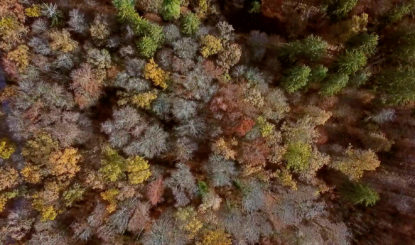Media release: Fondation Franz Weber calls out the CITES secretariat on its position on COVID-19
As global governments and institutions scramble to contain the current pandemic, the Convention on International Trade in Endangered Species of Wild Fauna and Flora (CITES), seems to have absolved itself from any responsibility in relation to COVID-19. For Fondation Franz Weber (FFW), this lack of accountability is unacceptable. The Swiss NGO sent an open letter to the CITES Secretary-General, asking for a clear message to consumers around the world.
Open-letter to the CITES Secretary-General:
Dear Madam Secretary-General,
It is with surprise that I read the CITES Secretariat’s official statement on the current COVID-19 crisis and its origini. In the name of Fondation Franz Weber (FFW), I wish to express another opinion regarding the stance and the arguments set forth by the Secretariat in relation to the pandemic.
Firstly, the Secretariat affirms that “zoonotic diseases are outside of CITES’s mandate”, since CITES Parties “are focused on regulating international trade”. This argument is concerning on many levels.
According to the Convention’s preamble, Parties recognized that “wild fauna and flora in their many beautiful and varied forms are an irreplaceable part of the natural systems of the earth which must be protected for this and the generations to come”. CITES strives for the “protection of certain species of wild fauna and flora against over-exploitation through international trade”. The role of CITES is, in other words, not only to regulate trade, but also and foremost to protect species as part of the natural systems of Earth. It seems that the Secretariat tends to forget that CITES cannot only be characterized as a trade agreement, but also as part of international environmental law.
It is beyond question that the coordination of efforts to contain the spread of the virus and provide the world population with adequate treatment does not fall within the scope of CITES. However, this Convention cannot forsake its responsibility in the face of zoonotic diseases.
The Secretariat seems to doubt that the origin of the pandemic is trade in and consumption of wildlife, dismissing the fact that pangolins host viruses similar to the new human coronavirus and the possibility that the virus is linked to pangolin consumption in China as “media commentary”. Chinese authorities have, on the contrary, taken this link very seriously, although somewhat late, taking urgent measures in early March to “eliminate the consumption for food of wild animals to safeguard people’s lives and healthii”. A Notification was issued by the Secretariat on these measures, at the request of the CITES Management Authority of China, which demonstrates that they do fall under the scope of the Convention.
COVID-19 is not the first case of zoonotic disease and will certainly not be the last. The on-going destruction of habitats and exploitation of species, which lead to exposure to unknown viruses, as well as international trade in wildlife, are evidently major factors in the transmission of these diseases to humankindiii. In light of these circumstances, the Secretariat’s statement that “sustainable and traceable trade regulated at the international level by CITES has many benefits for both people and wildlife”, is not only wholly inappropriate in the face of untold suffering and the escalating death toll, it is dangerous both to the endangered species that the Convention strives to protect and to human populations.
It is, indeed, the trade in wildlife, be it illegal or legal, which triggered the COVID-19 epidemic. Denying the threats posed by this trade sends the wrong message to consumers around the world.
CITES has a major role to play in the current crisis and in combatting future zoonotic diseases. Responsible leadership and a clear message from its Secretariat are urgently needed: a message that trade in wildlife is linked to these epidemics, and that the protection of these species must and will become a priority if we want to avoid future disasters. As UN Secretary-General António Guterres recently pointed out, “in managing this crisis, we also have a unique opportunity. Done right, we can steer the recovery toward a more sustainable and inclusive pathiv”.
Yours sincerely,
Vera Weber, president FFW
More information:
- Open letter FFW ( english version, german version)


